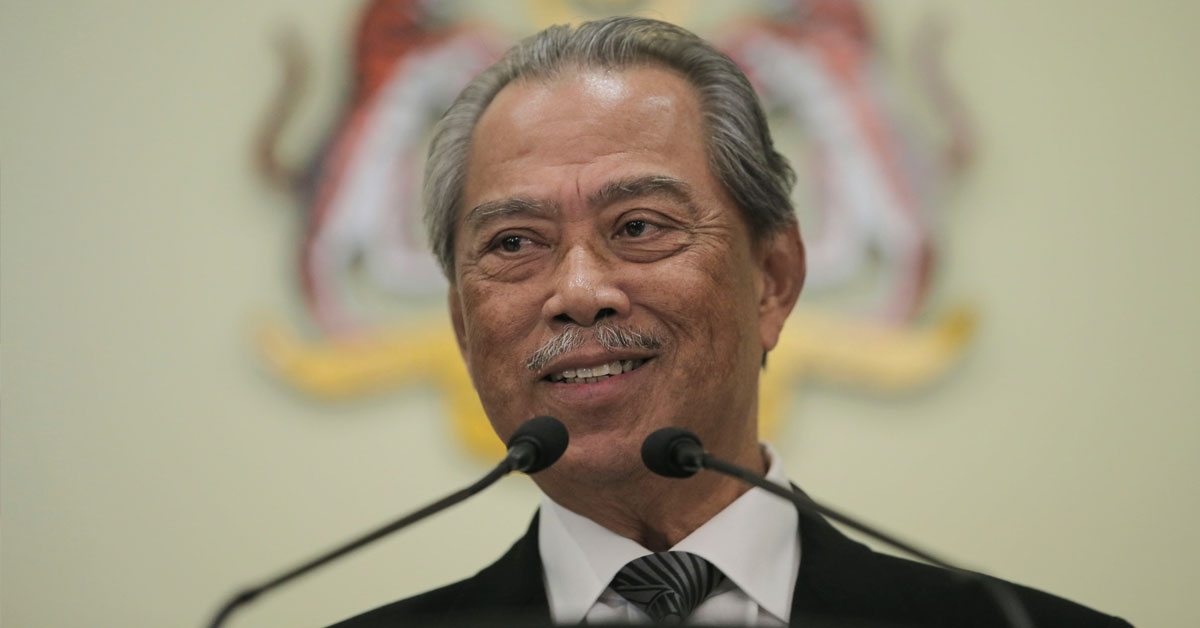With over 70,000 active COVID-19 cases and more infections being reported every day, the last thing Malaysia needs now is a political crisis.
But that’s exactly what they have.
If you’ve been following Malaysian politics as closely as The Handmaid’s Tale, you’d know that it’s been in turmoil for quite some time now.
In the latest episode of this political saga, the biggest political party in Malaysia’s ruling coalition withdrew its support from Prime Minister Muhyiddin Yassin, and called on him to resign.
If you don’t know what the heck I just said, well, here’s some context:
It All Began 15 Months Ago With Mahathir’s Resignation
Unlike Singapore, where one political party forms our government, the ruling government in Malaysia is made up of a coalition, or a group of parties.
And just like Singapore, the Prime Minister isn’t chosen by the people, but by the party in power.
In the 2018 Malaysian general election, the Pakatan Harapan (PH) coalition toppled the then ruling Barisan Nasional coalition, which had enjoyed an uninterrupted reign over the country since Malaya’s independence in 1957.
At the time, the PH was made up of four political parties:
1. Parti Keadilan Rakyat (PKR)
2. Parti Pribumi Bersatu Malaysia (Bersatu)
3. Parti Amanah Negara (Amanah)
4. Democratic Action Party (DAP)
It was an unprecedented victory, but a short-lived one.
Just 22 months later, in 2020, several political parties joined forces and tried to form a new government without going through a general election.
They intended to do this by claiming majority seats and support in the Dewan Rakyat, the lower chamber of the Parliament of Malaysia.
Since the majority coalition forms the government in Malaysia, parties in the ruling majority could simply switch over to the minority to form a new majority if they wanted to do so.
The parties managed to accomplish this through the withdrawal of Bersatu from the Pakatan Harapan coalition and through the support of several MP from PKR.
As a result, the then-prime minister, Mahathir Mohamad, resigned.
The King then appointed the president of Bersatu – Muhyiddin Yassin – as Malaysia’s eighth prime minister, without a general election.
Muhyiddin declared his coalition government as Perikatan Nasional (PN).
United Malay National Organisation (UMNO), the largest party in Barisan Nasional (the first and former ruling coalition), said in July 2020 that it would not join PN but would continue to provide confidence and supply to PN and remain a part of the PN federal and state governments.
In other words, it’s not part of the PN coalition but would provide support to the coalition and its leader.
Until now, that is.
UMNO Withdrew Support From the PM Due to The Government’s Handling of the Pandemic
Yesterday, UMNO withdrew its support for the PN government led by Mr Muhyiddin and called for his resignation.
In a Facebook post, UMNO president Ahmad Zahid criticised the government’s handling of the COVID-19 pandemic.
He explained that the party had supported Mr Muhyiddin’s appointment as Prime Minister on the condition that he could fulfil two major guidelines laid out by the supreme council back on 11 Mar last year:
- Ensure Malaysians’ aspirations were truly realised
- Control the economic downturn and devise an effective plan to handle the COVID-19 pandemic
UMNO believes that these guidelines were not fulfilled, adding that the ruling government had failed to defend the country’s parliamentary democracy, among other things.
UMNO’s Withdrawal Can Make the Muhyiddin Government a Minority, But Can’t End His Tenure
One of UMNO’s criticisms is that the Prime Minister misused Malaysia’s state of emergency for political purposes.
In January, Mr Muhyiddin imposed a state of emergency due to the pandemic. Critics argued that Mr Muhyiddin did this as an excuse to stay in power, as it did two things:
- Prevented a snap election
- Suspended parliament so his opponents couldn’t bring a no-confidence motion against him
If a prime minister loses a no-confidence vote, he must resign or allow the monarch to choose a new minister.
And while UMNO’s withdrawal can make the Muhyiddin government officially a minority one, they cannot end his tenure as Prime Minister.
This is why they are calling on Mr Muhyiddin to resign.
“UMNO urges Muhyiddin to step down with honor and allow a new prime minister to be appointed for a temporary term,” Mr Zahid said.
“It’s obvious that the government had failed in managing the country’s economy, the pandemic and in fulfilling the aspirations of the people.”
His replacement, UMNO said, will focus on residents’ welfare during the pandemic, handle COVID-19 with an inclusive approach, and ensure the vaccination and immunisation process are accelerated.
Malaysia will hold a special parliamentary sitting for five days from 26 July, but it’s unclear if the opposition will be able to force a no-confidence motion.
Since holding a general election now would be dangerous, Mr Muhyiddin would either have to resign, or lose a no-confidence motion to lose his post.
Stay tuned for more.
Featured Image: S.O / shutterstock.com



